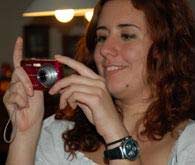This is the VOA Special English Education Report.
26,000 foreign exchange students are in American high schools this year. A few days ago, we asked four teenagers who arrived in August to discuss their experience so far. All but one are attending public schools in Fairfax County, Virginia, outside Washington.
Johanna is from Germany.
JOHANNA: "The biggest difference for me is the relationship to the teachers. Because here the teachers are more friends, and in Germany they are more like parents and strict and stuff like that."
Another difference? In American high schools, the students are usually the ones who change rooms. Johanna and Daniel come from schools where the teachers change classrooms.
DANIEL: "In Austria, it's more like you have all classes together with the same group of people. And so you are really good friends with like all the people you're in class with, because you know them since like four years and you have all classes together with them."

Hande from Turkey is living with a host family in Denver, Colorado. She says students in Turkish schools have less choice.
HANDE: "You cannot choose your own classes. And you don't have the right to drop out of one of them."
She says Turkish schools are also more formal.
HANDE: "When a teacher comes into the class you have to stand up and greet the teacher. He or she says good morning or good afternoon or something like that and you all, as a class, you answer. We don't do this in class here."
How does the education compare? Hande is in three Advanced Placement classes, which are meant to prepare students for college.
HANDE: "A.P. courses are really hard and they really force you to learn. But the regular classes, their level is lower than in Turkey."
Rosa is from a country where high school is five years, not four like in America.
ROSA: "In Italy we go to school only during the morning and just like for lessons. And Italian schools doesn't (don't) have like other activities. And whatever we want to do, it's outside the school or on our own or like private school or association outside."
On the other hand, she says, having to go elsewhere for activities is not necessarily a bad thing.
ROSA: "We in Italy, or in Europe, I think, we have a more free environment, if I can say this, because we are in touch with a lot of different things that are outside the school. It's like an American school could be a protective box."
And that's the VOA Special English Education Report, written by Nancy Steinbach. To learn more about high school exchange programs, go to voaspecialenglish.com. You can also find us on YouTube and Twitter at VOA Learning English. I'm Bob Doughty.
Related stories:
Obama challenges states to overhaul schools
College guide aims to help students avoid a 'thin education'
Out of class early: college in three years
Studying in the US: from "in loco parentis" to "partnership"
(Source: VOA 英语点津编辑)